"When I came to this club", Jock Wallace said, "Everything was wrong. The players were sick. They were sour. There was no ambition. The directors were frustrated. The fans were disenchanted. We were hugely in debt".
Sound familiar?
He was talking about the summer of 1978. We'd just been relegated under Frank McLintock after our most miserable season ever - five wins and 26 goals in 42 League games.
Jock changed everything. He got rid of the old timers and brought in a group of teenagers who, along with a few shrewd signings from Scotland, took us back up two years later as Champions.
Everything about the club was rejuvenated, and Jock formed a bond with Leicester fans closer than any previous manager had enjoyed.
Today, September 6th, would have been his 87th birthday.
He died tragically young, aged just 60, but he packed a huge amount into those years. This is the extraordinary story of those triumphs and tragedies. It's a long read, and it'll be divided into about a dozen sections, which I'll post one a day for the next couple of weeks.
It could be a momentous couple of weeks for Leicester City. This story is a reminder that a crisis is also an opportunity.
I hope you enjoy it.
1) Same Old Leicester
It's August 29th, 1936. Leicester City are playing Blackpool at Filbert Street in the first game of the season, and just after the start comes a small moment of history.
Leicester's opening attack has come to nothing, and the referee has signaled for a goal kick.
What happened next?
In previous years, a defender was allowed simply to tap the ball to the keeper, who could pick it up and advance to the edge of his area for a drop kick.
But in the summer of 1936, the FA introduced a new goal kick rule. Now, the ball had to be kicked right out of the penalty area before it was deemed in play.
So that August afternoon, the Blackpool keeper placed the ball carefully at the edge of his six-yard box, took a series of precisely measured backward steps, then ran forward to belt the ball down field as hard as he could.
Leicester supporters behind the goal would no doubt have grasped the comic possibilities pretty quickly. Visiting goalkeepers always present an inviting target, and this poor fellow had to go through the whole routine right in front of them.
It would have been isolated jeers and wisecracks for the first kick, but then, perhaps even on this first day, others would have latched on and joined in, the jeers gradually becoming a chorus. Years later (no-one knows exactly when), four-letter words were added, and the Leicester City goal kick ritual became fully established.
But on that first day, it had little effect. The match report tells us how well the 'new goal kick' was being performed by the Blackpool keeper.
He wasn't the type to be easily intimidated. His name was John Wallace. Commonly known as 'Jock'.
Blackpool won 2-1 that day. Nearly 50 years later, voices from those same terraces would be directed at Jock's son. Not in provocation, but in adoration.
2) The Holy Grail
Jock Wallace Jr. was only at Leicester for four years, but this story will cover the highlights of the whole career - of both him and his father. Not just because it is such an incredible tale, but it also helps us to understand what happened in those four years at Filbert Street. An additional reason is that for both of them, Leicester City keep cropping up at key moments in the story.
Jock Senior started his career at Raith Rovers but was soon spotted by English scouts and moved to Blackpool in February 1934, aged 22. At that time, there was one trophy footballers wanted to win above all others. Not the World Cup (still in its infancy, without home nations' participation), not the European Cup (still 20 years away), not the League Title - which was then placed second behind the big one - the FA Cup.
Jock got his first chance in 1935 when in the draw for the Third Round, Blackpool were handed an away tie - at Filbert Street. City were then struggling at the bottom of Division One, and the Cup offered a welcome diversion. Surely they could get past Second Division Blackpool.
It wasn't that easy. Here's Jock in action that day:
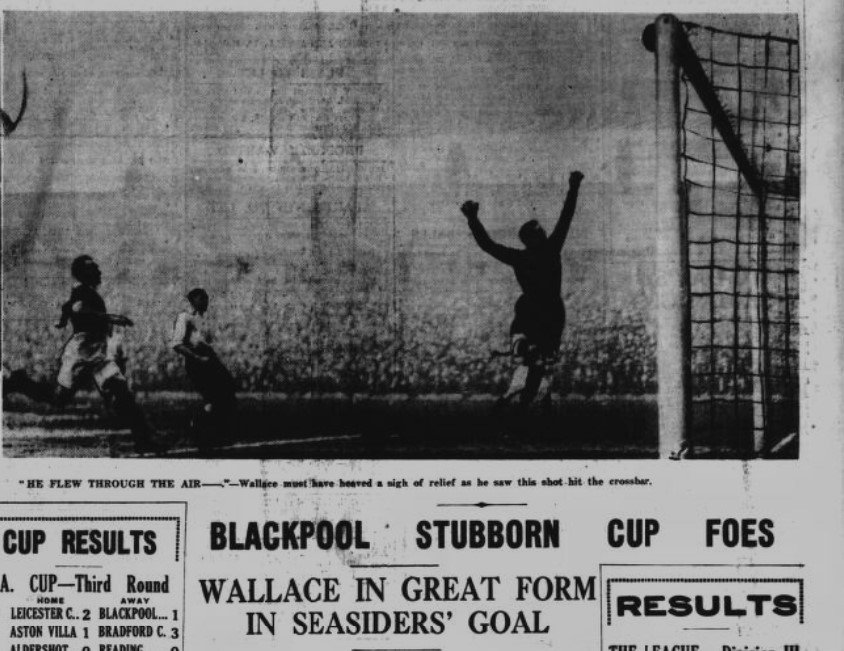
The report speaks of 'wonderful goalkeeping by Wallace'. But eventually we made the breakthrough and won 2-1 (though we didn't have much of a Cup run. We lost 1-0 at home to Arsenal in the next round).
3) It's A Boy
At the start of the following season,1935/36, Blackpool have a new manager, Joe Smith. He would stay in the job for over two decades and lead them out at Wembley for that most famous of all FA Cup occasions - the Matthews Final of 1953.
Leicester had lost their fight against relegation and were now Blackpool's rivals in Division Two.
In the first week of the season, it was all happening for Jock. His wife was expecting a baby, though she was over a hundred miles away in Wallyford, the family home near Edinburgh. Jock wanted the child to be born in Scotland. In those days, you could only play for the country of your birth - and as Jock imagined the future, the thought of a son in an England jersey was more than he could bear.
On Friday September 6th, John Martin Bokas Wallace came into the world. It's unlikely Jock Senior was present. On the Wednesday he'd helped Blackpool to beat Norwich 2-1, and on Saturday there was a fixture at Bury, which Blackpool drew 1-1 to put them top of the table.
Those names tell a story. John and Martin were taken directly from his father. But what about 'Bokas'? That was a tribute to his teammate, Frank Bokas, a half back who rarely got a game in Blackpool's first XI, but who was clearly a great friend.
Here's the proud father and wee Jock:
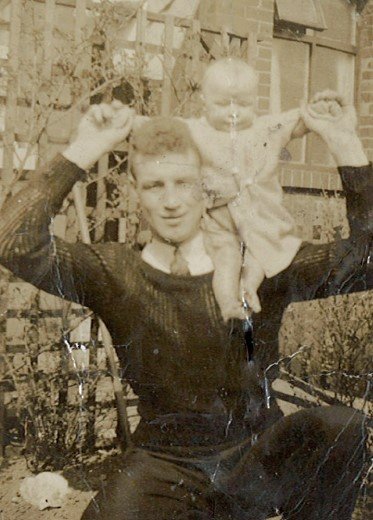
After that great start, Blackpool's season trailed off. A couple of weeks after Jock Jr. was born, Leicester City traveled to Bloomfield Road cheered on by over 2,000 away fans out for a fun weekend at the seaside. We won 5-3 to leave us top of the table. But that too was a false dawn. We would finish 6th, with Blackpool down in 10th.
4) Promotion Rivals
That brings us back to the 'new goal kick' occasion we started with. After that 2-1 defeat to Blackpool on the opening day of 1936/37, we were struggling for a few weeks and a drop into the third tier seemed a possibility. Then new boss Frank Womack signed the legendary Jack Bowers from Derby.
We went on an incredible run, with Bowers scoring 12 in his first six games. That set up the match of the season on Boxing Day - the return game at Blackpool. We were unbeaten in eleven, they'd won six on the trot, scoring 24 goals in the process.
But one man would be missing. Two weeks before at Plymouth, Jock Wallace was stretchered off and taken to hospital 'in a grave condition with a suspected fractured spine'. On Boxing Day, he was in a hospital bed listening for updates from Bloomfield Road as we were given a real hammering - Blackpool were 6-0 up after 55 minutes and a record score looked on the cards.
Thankfully, we salvaged a bit of pride and it finished 6-2. And thankfully for Jock, his injury wasn't as serious as first feared. He was back in action a month later to help his team to second place at the end of the season - behind Leicester City. Yes - the teams that had met on the opening day were the two promoted - and so the rivalry would continue in the top flight.
5) The Hampson Tragedy
January 8th 1938. Blackpool's latest quest for the FA Cup began with an impressive 1-0 win at Birmingham. Then two days later the unthinkable happened.
Jimmy Hampson was Blackpool's centre forward. Jock stopped them at one end, Jimmy knocked them in at the other. In 361 games for them he'd scored 248 goals - a club record that still stands.
On Monday afternoon, he heard the draw for Round Four. Blackpool were heading back to Birmingham - this time to play Aston Villa. On Monday evening he went fishing with friends off the Fleetwood coast. His boat was hit by a trawler, and he was knocked overboard. His body was never found.
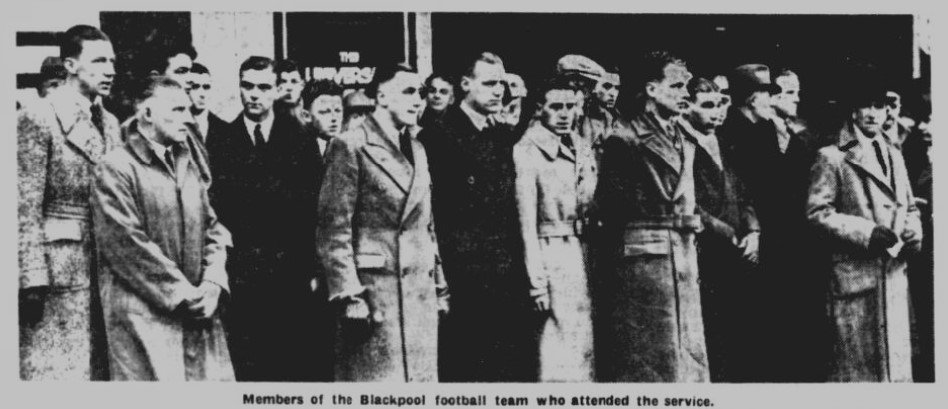
The photo shows the Blackpool players at the memorial service. That's Jock on the middle-right of the picture with the dark-coloured belt.
A week after the funeral, they lost that tie at Villa 4-0 in front of almost 70,000. On the same day, Leicester City went out at Preston, Blackpool's great rivals. Inspired by Bill Shankly, Preston went on to lift the Cup.
You can see Jimmy Hampson in this photo of the Blackpool team of the late 30s:
Jock is circled in the back row. In the middle row from the left are Jimmy Hampson, Fred Bokas and Maurice Reeday, the full back who would shortly join Leicester City and gain a reputation as Stanley Matthews' toughest opponent. In the front row is Peter Doherty, widely considered the finest inside forward of his generation.
The following year was the last before the war. Leicester would be relegated, and Jock would play his last games before spending the war years back in Scotland, making guest appearances for a number of teams.
Jock Junior was at school in Wallyford, sharing not only his father's name, but also his passion for football. And in the next part of this story, along with the amazing tale of Jock Senior's last bid for FA Cup glory, we'll see Jock Junior set out on his own career.
6) Football Fever
Jock Jr. was a Rangers fan. His first visit to Ibrox was in 1944, and it was a bit of an adventure. He'd walk five miles from his home in Wallyford near Edinburgh, catch the supporters' club coach, then at the ground he'd ask people to lift him over the turnstiles.
When the war was over, it seemed like everyone had the same idea. After a seven year break, people were desperate to see competitive football. Jock Sr. was trying once again to get to Wembley with Blackpool, and in February 1946 they played Middlesbrough in a Fourth Round replay, staged at neutral Elland Road.
Such was the clamour to see the match that fans ripped down fences around the ground and an estimated 15,000 people got in without paying.
This was the scene after the game:
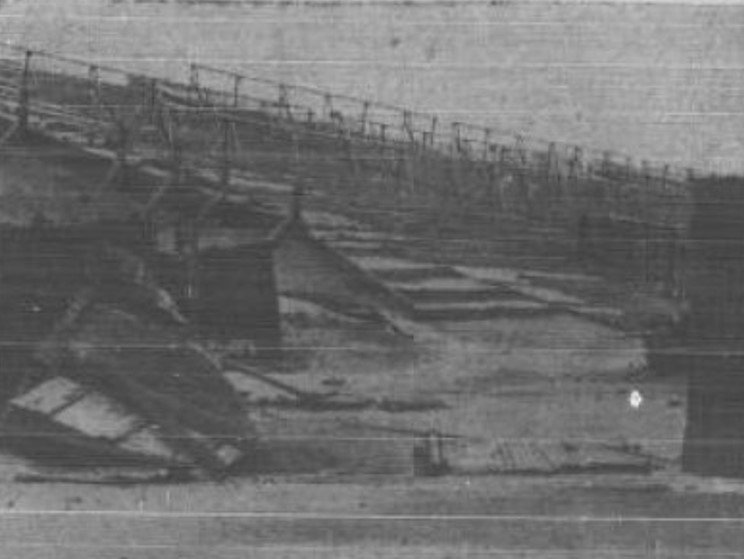
Sadly for Jock, Blackpool lost 1-0.
Just a month later another combination of huge crowds and poorly maintained facilities led to 33 people dying in a crush at Bolton. It was the worst disaster in British football history - until the 1971 Ibrox tragedy, which features later in this tale.
7) First Major Trophy?
In 1946/47, Jock Jr. moved up to Musselburgh Grammar School, and turned out regularly for the school team. He wasn't yet a keeper (his future position) - he played centre half. It was a star-studded team - in goal was future Scottish International Bert Slater, and in the forward line was John White, future Spurs and Scotland inside forward.
Meanwhile Jock Sr. was having a great season with Blackpool. They'd never won a major trophy, but a remarkable game at Liverpool over Easter left them in a heady position - top of the Football League. Liverpool had gone two up, but the Tangerines stormed back to win 3-2, with a last minute wonder save from Jock preventing an equaliser.
This was the table after the game:
You'll notice that Wolves had an amazing five games in hand. Blackpool lost their next two, but Wolves stalled too and it was Liverpool who won the title.
8) The Disappearing Goalkeeper
For the following season, 1947/48, Blackpool signed Stanley Matthews from Stoke City. Could he be the catalyst that would finally bring them a major trophy? Expectations were high when they hosted Leeds United in the Third Round of the Cup. But there was a late hitch - Jock Wallace had gone missing:
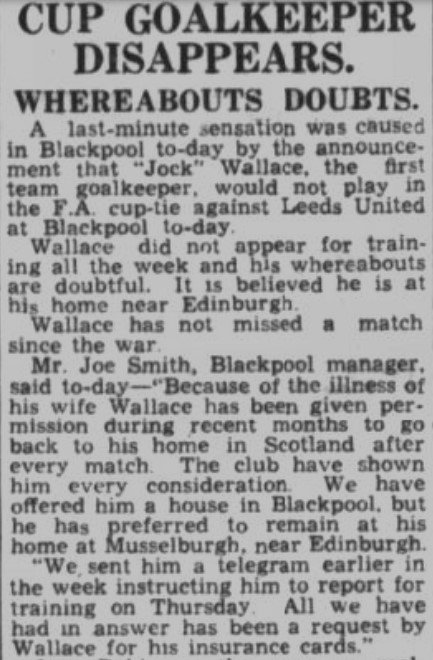
Jock failed to turn up and was suspended by the club. He never played for them again.
Blackpool didn't seem to miss him. They beat Leeds 4-0 and then went on a great run to the latter stages of the competition. Jock had missed out on his chance for Wembley glory.
Or had he? That wasn't the end of the story.
Derby County were also having a good Cup run and had made the quarter finals. But before the tie at QPR they had a goalkeeping crisis. With no senior keeper fit they were desperate to sign someone. There was just one problem - all the decent keepers were Cup-tied, having already turned out for their own sides in the earlier rounds.
That's where Jock came in - having been AWOL for that Leeds tie, he was free to play for any other side in the competition. Derby snapped him up and he played as they got past QPR and into the semi--finals.
There was now the prospect of Jock facing his old side in the final at Wembley - if Derby could beat Man U, and Blackpool could get past Spurs.
Here's Jock's photo in the Derby Evening Telegraph before that semi-final:
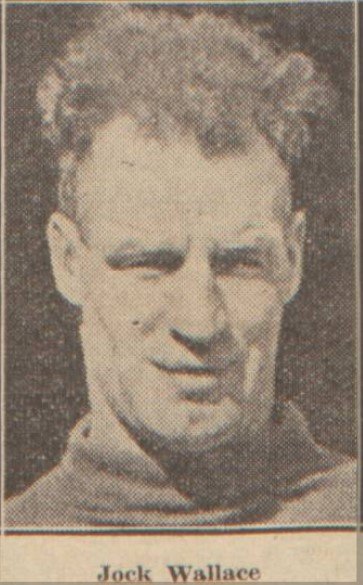
It wasn't to be. Stan Mortensen hit a hattrick as Blackpool made it to Wembley for the first time, but Derby fell 3-1 to Man U at Hillsborough. In the Final it was United who triumphed, leaving Blackpool and Stanley Matthews the loveable losers, just like Leicester City a year later. Jock's head was no doubt spinning with thoughts of what might have been.
9) The Final Drama
Jock's time at the Baseball Ground was brief. At the end of that season he went back to Scotland to play part time for Leith Athletic in Edinburgh in Scottish League Division C. The rest of the week he worked down the pit and did various other manual jobs - including working on the development of Leith Athletic's ground.
No clubs could get permission to use precious building materials for football grounds in the austere post war years, but Leith took a different route. St. Bernard's were another Edinburgh club in the Scottish League, but financial problems in wartime led to the club folding and their small main stand being sold - to Leith Athletic.
You can see the stand here, at St. Bernard's on the left, and then at its new home:
So Jock not only played in front of Leith Athletic fans, he also helped reconstruct the stand from which they watched him.
The final drama in his career came on January 28th 1950 when Leith were on the verge of a major upset. They were away to St. Johnstone in the Scottish Cup and leading 3-1 at half time. Then everything fell apart. 38 year old Jock conceded six goals in the second half and they lost 7-3.
That was his last game in professional football. It was time for his son to don the gloves...
10) Following In His Father's Footsteps
Blackpool boss Joe Smith must have forgiven Jock for that disappearance in 1948, because just a couple of years later, Jock Jr. was taken on as an apprentice at the club.
By this time Jock had switched from centre half to goalkeeper, and no doubt it was his father's old connections at Bloomfield Road that opened the door.
It wasn't to be, though. He quickly got homesick and returned home to Wallyford.
Then he ventured south of the border again - to Workington in 1952. Once again, his stay was brief. He made just six appearances for them in Division Three North,
Fortunately, photographs remain of his time at the club. Here he is in a cap playing at Chester in October 1952, aged 17:
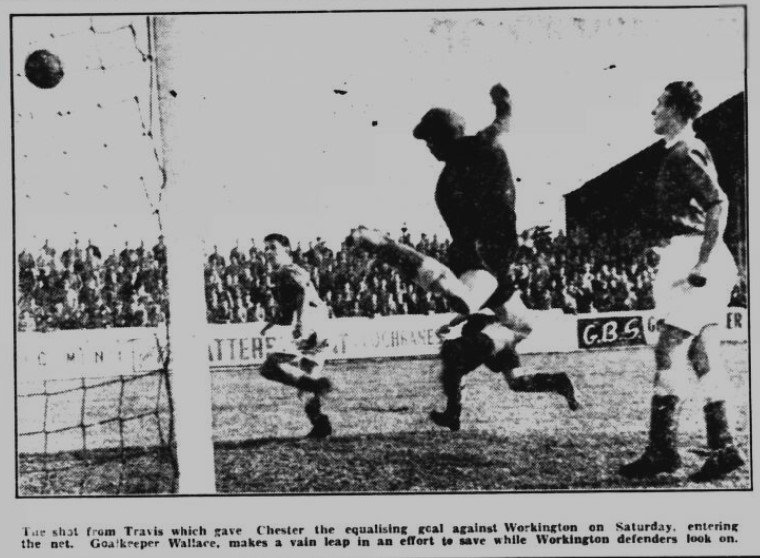
After his short spell at Borough Park he turned out for non-league Ashton United, near Manchester, before returning home once again to Scotland.
There seemed to be no clear direction to Jock's life. But then came the experience that shaped his character and laid the foundation for a great career.
11) In 1955, Jock Jr. began his National Service. He was posted to Malaya, where the UK was trying to suppress an independence uprising.
His time in Malaya showed him the value of hard, disciplined training and also how good teamwork could mean the difference between life and death. The lessons he learned would guide him for the rest of his life.
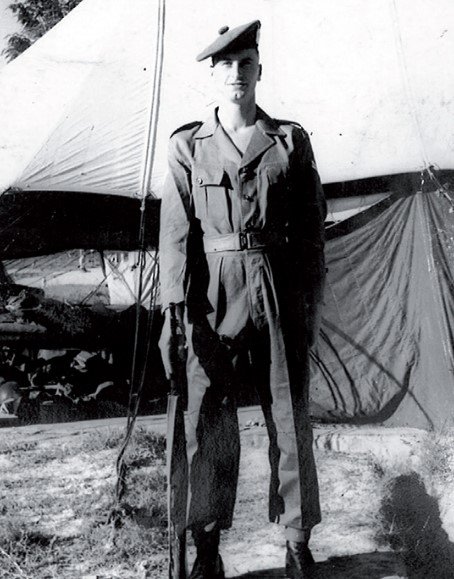
He kept playing football in Malaya, and finally enjoyed some success:
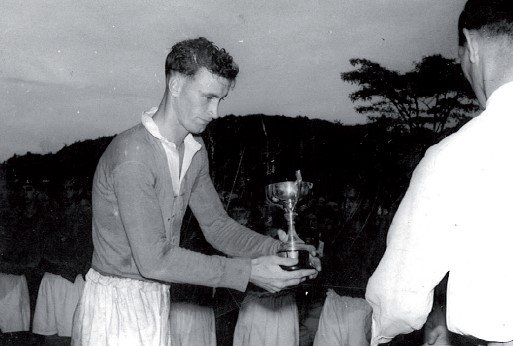
12) Before he left for Malaya, Jock had signed with Berwick Rangers, and on his return to Scotland in 1957, he resumed his career with them.
This was a different Jock. Fitter, more confident, he quickly attracted scouts from the top Scottish clubs, who were impressed by the way he would command his area.
In October 1957, he signed for Airdrieonians in the top flight. The photo below is of poor resolution, but there's no mistaking the attitude. It's the first sighting in this tale of the trademark Wallace resolve:
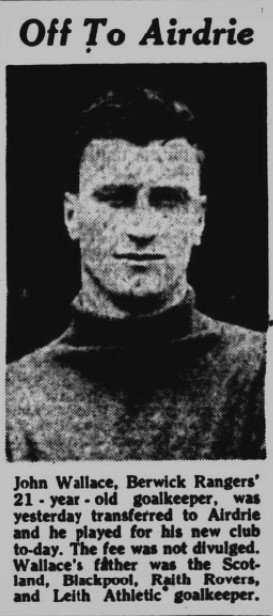
When Jock signed, Airdrie were bottom of Division One, but he helped them stay up, and the following season, they started well and by Christmas were challenging for the title.
When they beat Aberdeen 2-1 on December 27th, Airdrie were unbeaten in eight games and second in the table just a point behind Rangers. Jock was getting rave reviews, and the following week he was called up to play for the Scottish League against the Scottish FA. This was a trial match - based on this, the selectors would pick their team for the game against England at Wembley.
The possibilities were intoxicating. Could Jock play for Scotland? (the closest his father had come was being chosen as reserve in the 1930s). Could Airdrie win the League? (the closest they'd come was finishing second in the 1920s under Willie Orr - the man who took Leicester to the runners-up spot in 1928/29).
Then the trial match was postponed due to a snow storm. It would be delayed until March. By then, Airdire's title challenge had hit the buffers, and they'd been thrashed 7-2 at home in the Cup by Motherwell, with Ian St.John scoring four.
The trial match eventually took place, but Jock wasn't selected for the Wembley game. In May, with first choice Bill Brown injured, Jock finally got a call up for Scotland, but only as reserve for the game v West Germany at Hampden. He was just a spectator as Falkirk's John White, his old Musselburgh Grammar School teammate, made his debut and scored in the first minute to help Scotland to a famous 3-2 win.
13) Early the following season, 1959/60, those two Musselburgh lads were heading for England.
On October 6th, Leicester City manager Matt Gillies traveled north to sign John White. But Falkirk stalled. We wanted to offer a player in part exchange, Falkirk wanted cash. Bill Nicholson jumped in, stumped up the fee and White signed for Spurs. Several English clubs were also in the race to sign Jock Wallace. Leicester were not one of them - we had Gordon Banks, who had just made his debut. But West Brom were desperate. They'd shipped eleven goals in three games, and that persuaded them to pay the high fee Airdrie were demanding. So a week after John White joined Spurs, Jock too moved south.
Albion's fortunes quickly improved. Jock kept a clean sheet in his first two games, and having been 17th when he joined, they rapidly climbed the table. This is him before a game at Highbury:
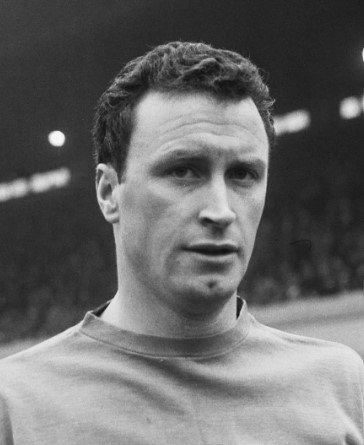
Leicester too were on the up. After a 3-0 win at champions Wolves in December, Gillies wrote in his diary that this was the day 'the team began to live again'. Soon, these two improving clubs would go head to head.
14) January 16th 1960
Three months after signing for West Brom came a milestone in Jock's career - his first game at Filbert Street.
Albion had a special routine when they traveled to Leicester. They considered it a lucky ground and took the same route from Birmingham every season. They would stop at a hotel in Ashby for lunch so they could see their 'lucky monkey', on display at the hotel. The creature might have had a lucky escape that day. Jock's favourite Malayan jungle anecdote was about how he used to survive on 'monkey steaks' (anyone from Ashby who knows more details about this hotel and its monkey please tell us!)
Leicester were on a great run - unbeaten in seven - and we played brilliant football that day. The Leicester Evening Mail called it the game of the season so far. But however good the approach play, we couldn't get past Jock Wallace:
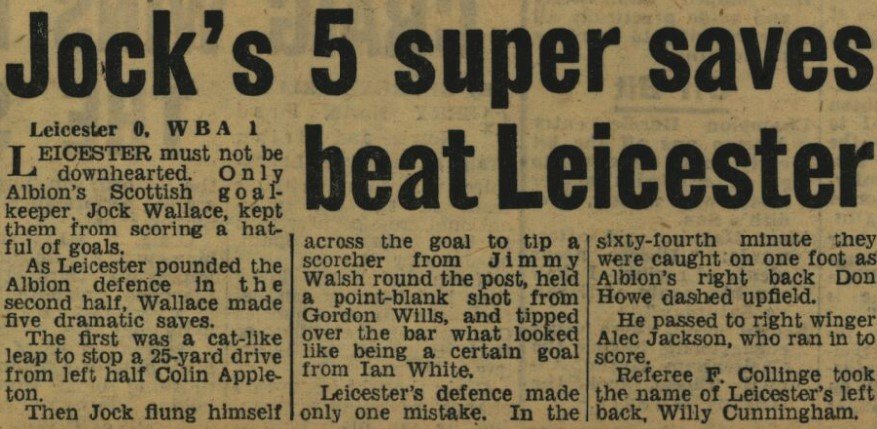
15) Two months later, and Albion were back at Filbert Street for a huge match - in the Fifth Round of the FA Cup.
It was the first ever all-ticket match at Filbert Street, and it was a day of huge drama.
City raced into a two goal lead within half an hour. Here's Jock failing to stop Jimmy Walsh's opener:
Then at half time, referee Jack Husband, 44, collapsed and died in the dressing room. These days the game would no doubt have been called off, but back then, the game had to go on.
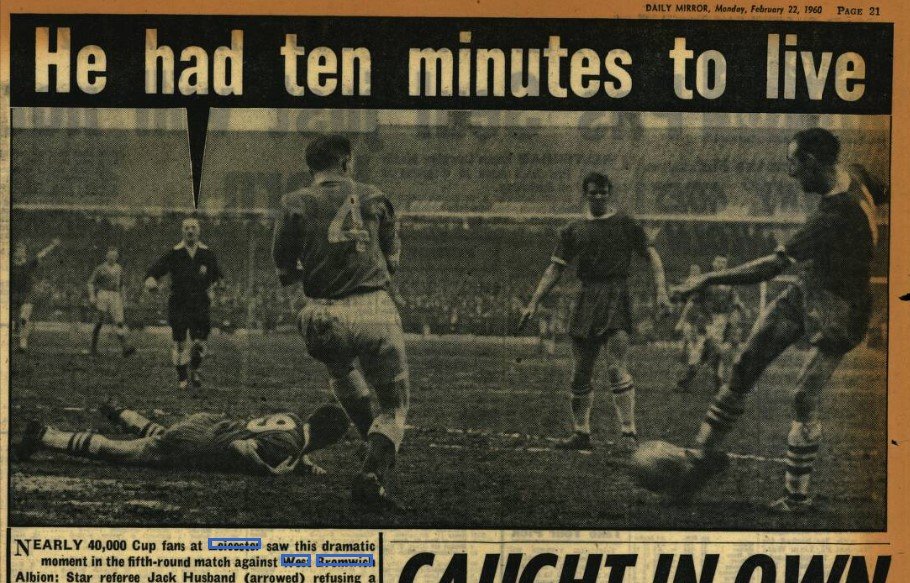
There was a 15 minute delay to the second half as a linesman took the whistle and a reserve official was located. Albion came back in the second half, but we held out for a 2-1 win.
So just like his father twenty-five years before, Jock's first FA Cup campaign ended at Filbert Street.
16) April Showers
Jock and Daphne were married in April 1960, two months after that Cup exit at Leicester. As you can see, they were showered with confetti.
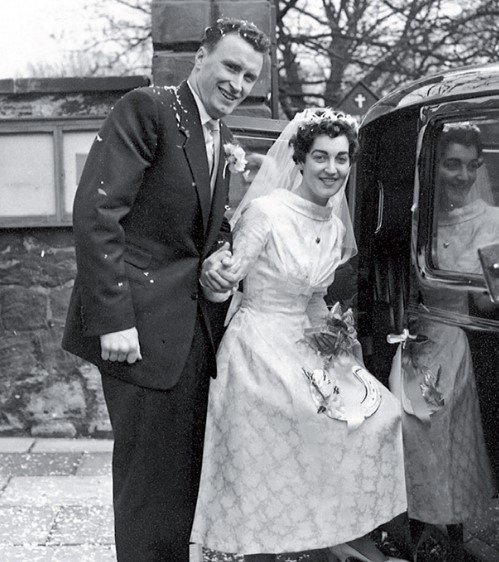
It was a recurring theme that spring.
Just before the wedding, he'd been the guest at the Atherstone Shrovetide football game when, reports tell us, Jock 'showered local children with sweets, oranges and coppers'.
Then at the end of April, Jock was on the receiving end when he upset the crowd at Birmingham City. He deliberately belted the ball into the crowd (it seems, to waste time) and his clearance injured an eight year old boy, who had to be treated by medical staff. Not a good idea to upset those Small Heath lads. The home fans pelted Jock 'with apple cores and cartons', and at the end, he was jostled as he left the pitch. It didn't help that Albion won 7-1.
A week later came the inevitable kiss and make-up story - with the boy who'd been hit beaming broadly as Jock presented him with lemonade in the dressing room before the return match at The Hawthorns.
17) Come On Leicester!!!!!
The following season, 1960/61, Leicester went on an amazing run of 13 games unbeaten that took us into the last four of the FA Cup and up to fifth place in the League. It was just like the 'Ice Kings' run two years later.
Then, just before our semi-final with Sheffield United, we had a League fixture - at West Brom. That's where the run came to an end. Jock kept us out and Albion won 1-0.
And to connect with another recent thread, look at this photo:
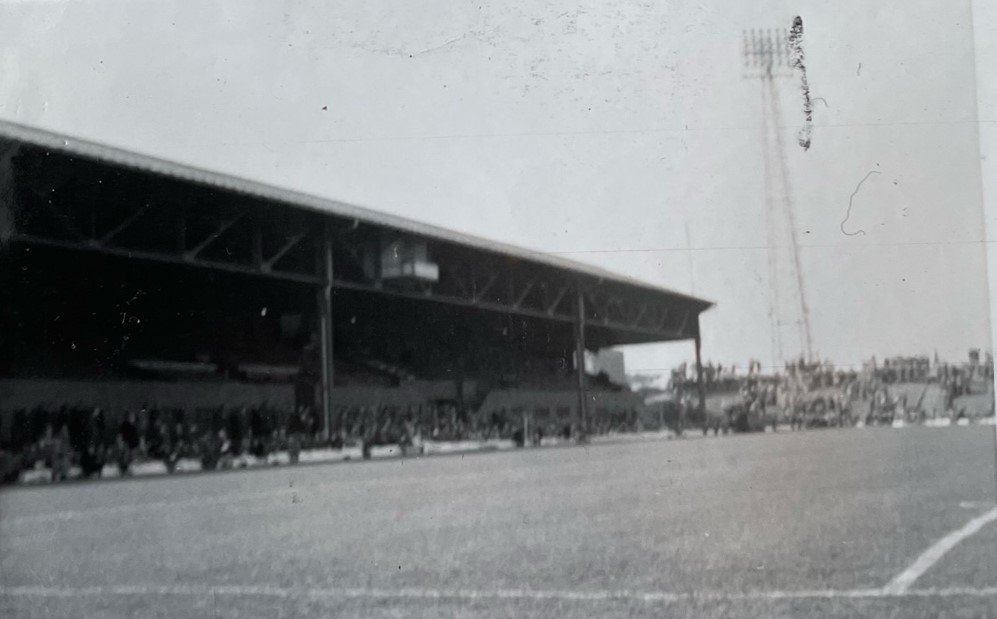
It was taken by our old friend Bernie Henson. The place and date are not recorded, but a bit of detective work identifies it as the Main Stand at The Hawthorns in the early sixties, and the most likely occasion is that 1-0 defeat in March 1961.
18) In the Final that year, of course, we faced Spurs, who had already won the League. A week before Wembley, Spurs' final League game was at home to West Brom - and they needed just a point to break the all time record of 66 points, held by Arsenal.
They couldn't manage it. Albion won 2-1, and the hero was Jock Wallace. The only time Spurs beat him was when Bobby Smith 'bundled home a shot with all the grace of a dustman aiming a crude kick at a cat'. Apart from that all they could offer were a stream of high crosses 'that Wallace always cut out'.
19) The other big Wembley occasion that spring was the famous 'nearly ten past Haffey' game - England 9 Scotland 3.
How close was Jock to being in goal for Scotland that day? When he joined Albion in 1959, he was either second or third in line, and he said it might take him two years to break into the Scottish XI. Well, that time had elapsed, and Jock was still to win a cap. Why?
In truth, despite numerous heroic displays for Albion, he was prone to the odd 'dodgy keeper' performance. These reports would have reached the ears of Scottish selectors, who may even have witnessed one of these lapses in the flesh.
Jock would always regret that he couldn't win the cap that both he and his father longed for - but I wonder if a part of him was relieved that it was Frank Haffey, not him, that endured the humiliation of conceding nine goals to the old enemy on that April afternoon.
20) The following season, 1961/62, Jock's playing career took a downward turn. He was only 27, but he was struggling for form. A week before Albion's big Cup tie at neighbours Wolves, Jock's howler gave Burnley a late equaliser. You can see it at 11.00 in this video:
West Brom v Burnley 1961-2 - YouTube
Jock had been dropped earlier in the season, but he kept his place for the Wolves game, and was back to his best as Albion won 2-1. The beautiful photo below captures a rare uncertain moment for him in that game. Don Howe is the Albion number 2, Bobby Robson on the right.
In the next round, holders Spurs came to the Hawthorns and won 4-2 on their way to retaining the trophy.
A couple of weeks later, the BBC filmed a fly-on-the-wall documentary at Albion. It's a fantastic portrayal of English football in a different age.
If you don't have 30 minutes to spare, just have a look at the sexy beast in the shower about four minutes in.


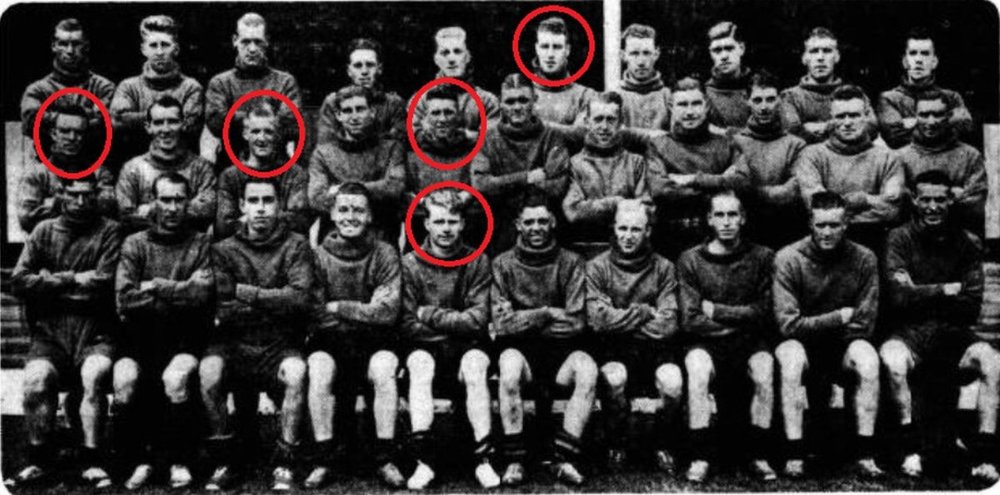

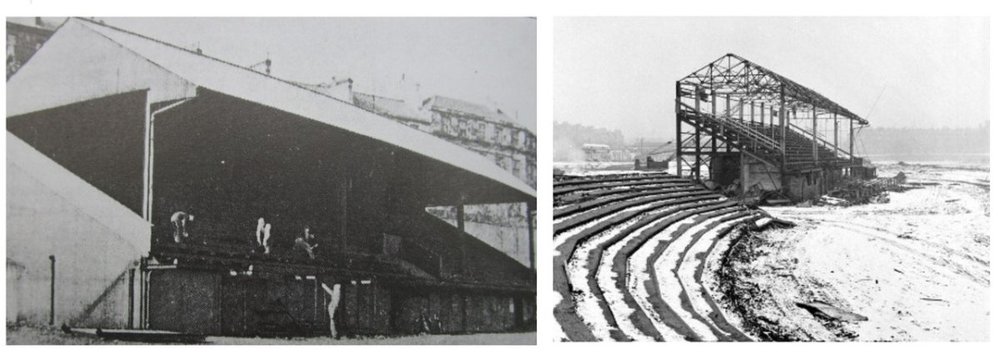
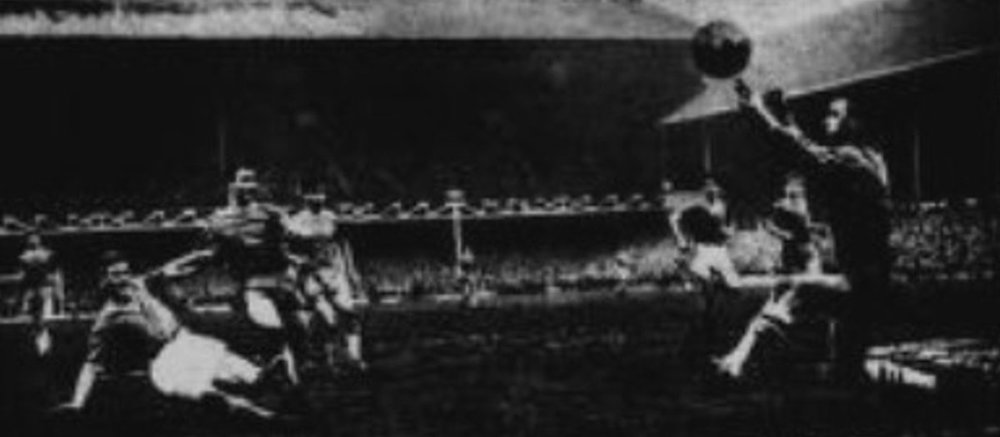
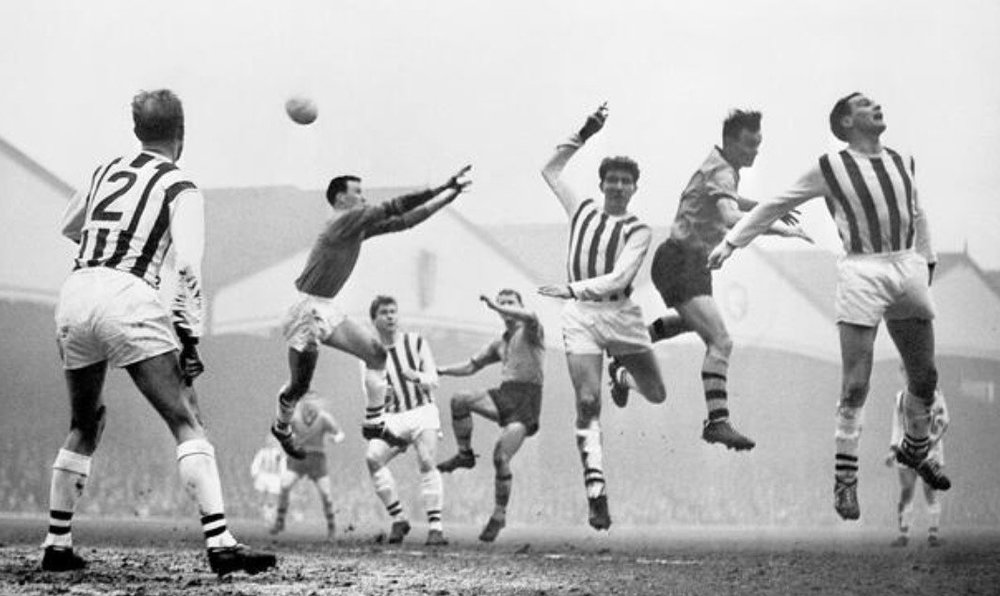

Recommended Comments
There are no comments to display.
Join the conversation
You can post now and register later. If you have an account, sign in now to post with your account.
Note: Your post will require moderator approval before it will be visible.